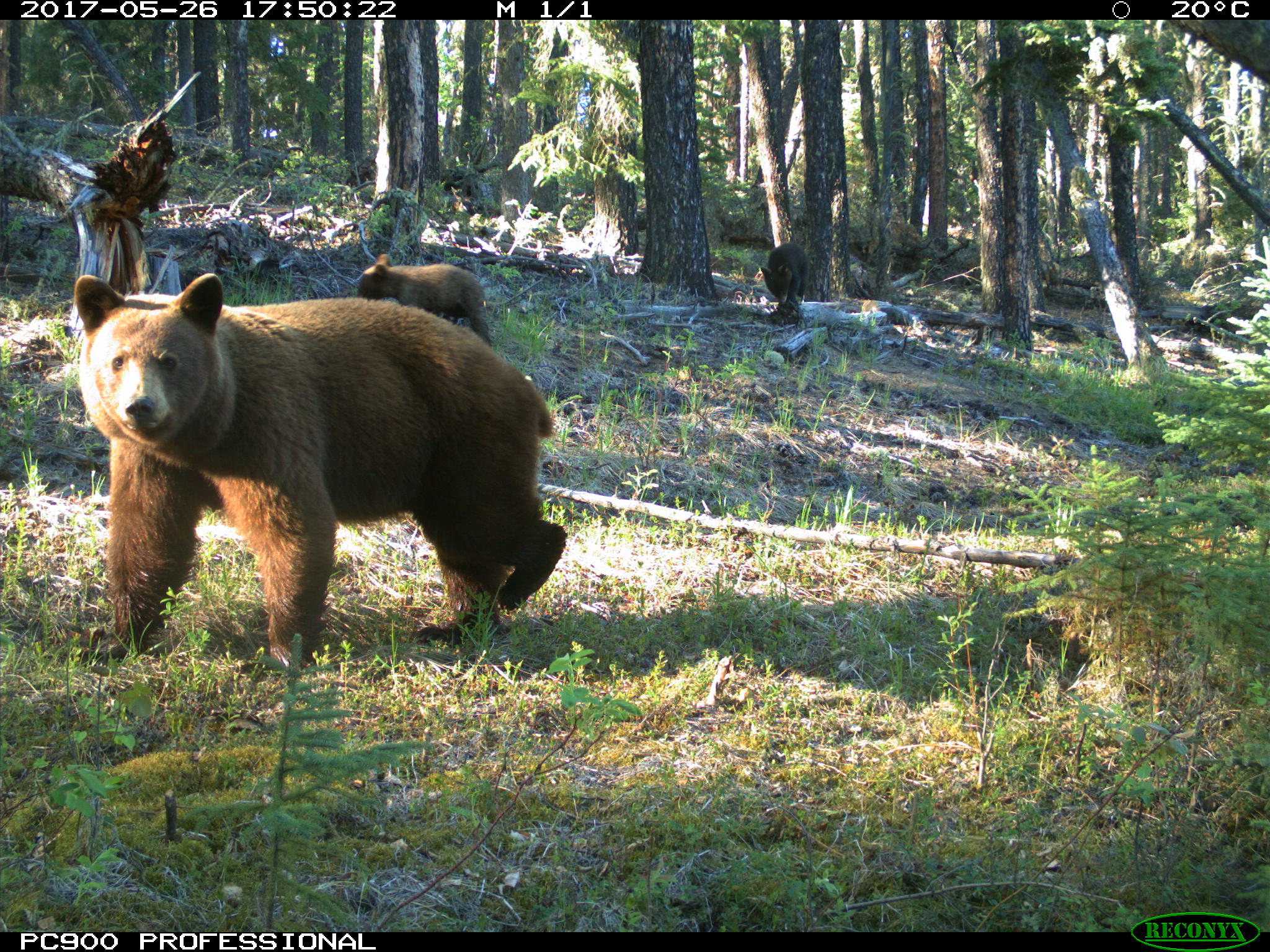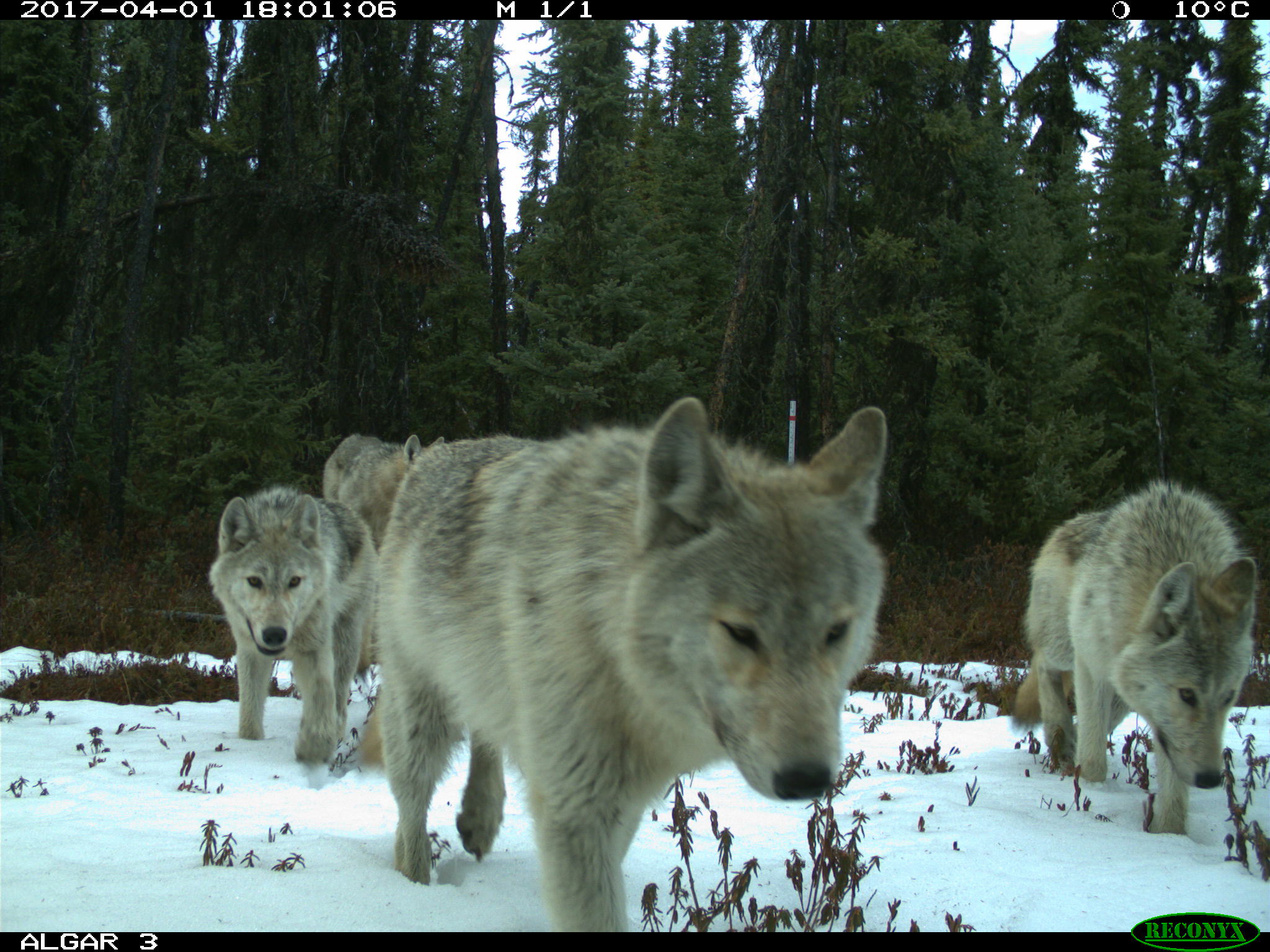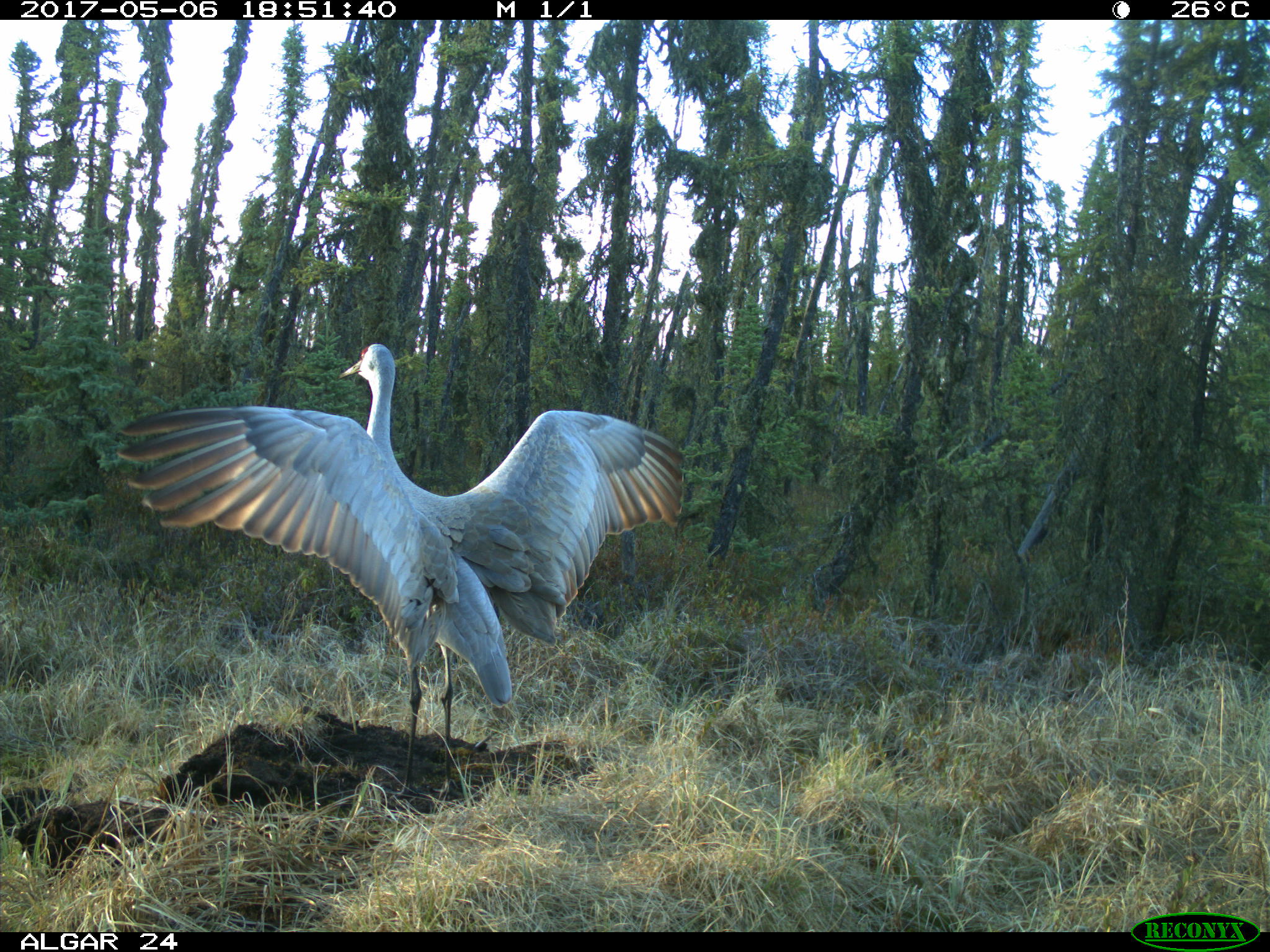Scaling Up Camera Trap Surveys to Inform Regional Wildlife Conservation
- Start Date: May 18, 2021
- End Date: May 20, 2021
- Time: 8:30am - 1pm Pacific Standard Time
- City: online, via Zoom
- Proceedings document now available
PHOTOS: Remote Camera Trap images, Cole Burton
Conference description
The exponential growth in the use of camera traps (aka remote cameras, trail cams) is revolutionizing wildlife monitoring. Improvements and cost-reductions in camera trap technology, advances in statistical and computing methods for analysis, and a growing awareness of the need to monitor wildlife across large spatial and temporal scales, are all leading to increasing use of this powerful tool. Hundreds of thousands of cameras are being deployed to survey wildlife around the world, including many thousands deployed in western Canada by academic researchers, government and industry practitioners, and citizen scientists. This growth in sampling has the potential to transform our understanding of the ecology of terrestrial vertebrate wildlife, and inform their conservation and management at regional scales. However, the dizzying pace of growth in camera trap methodology can temper this potential, creating confusion or disjunction in implementation. The emergence of global and regional camera-trap networks is aiming to improve standardization and coordination among surveys, but the success of these networks will depend on effective communication and collaboration among researchers and practitioners.
This conference addressed key questions in the development and application of camera trap methods. It showcased established and emerging case studies, and was a forum for sharing lessons on fundamental topics such as sampling design, data management and analysis, and multi-project collaboration. This conference provided a gathering space for scientists, managers, students, and citizen scientists to network and learn about current thinking on the science and application of camera trapping for wildlife ecology and management.
Conference proceedings is here and the Conference Dashboard is linked below.
The Conference Dashboard for all registrants is here which includes all conference materials, including recordings. Access is password protected, all registrants received this password via email.
Keynote & Invited speakers
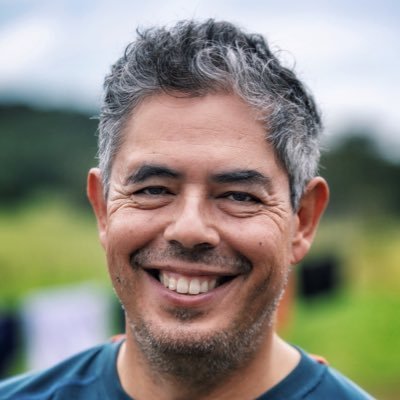 Jorge A. Ahumada, Senior Wildlife conservation scientist & Executive Director – Wildlife Insights. Moore Centre for Science, Conservation International, Arlington, VA, USA.
Jorge A. Ahumada, Senior Wildlife conservation scientist & Executive Director – Wildlife Insights. Moore Centre for Science, Conservation International, Arlington, VA, USA.
Senior conservation professional with more than 20 years of experience in environmental science, conservation, and management of large diverse programs in Latin America and globally. Jorge is known for his design and implementation of multi-institutional partnership collaborations with governments, non-government organizations, and companies. Jorge has a deep passion for nature and wildlife, he looks forward to connecting with us and sharing his depth of knowledge and experience with the use of camera trap networks for wildlife conservation. He will present a talk titled “How a new technology platform can put camera trap data to work for conservation.”
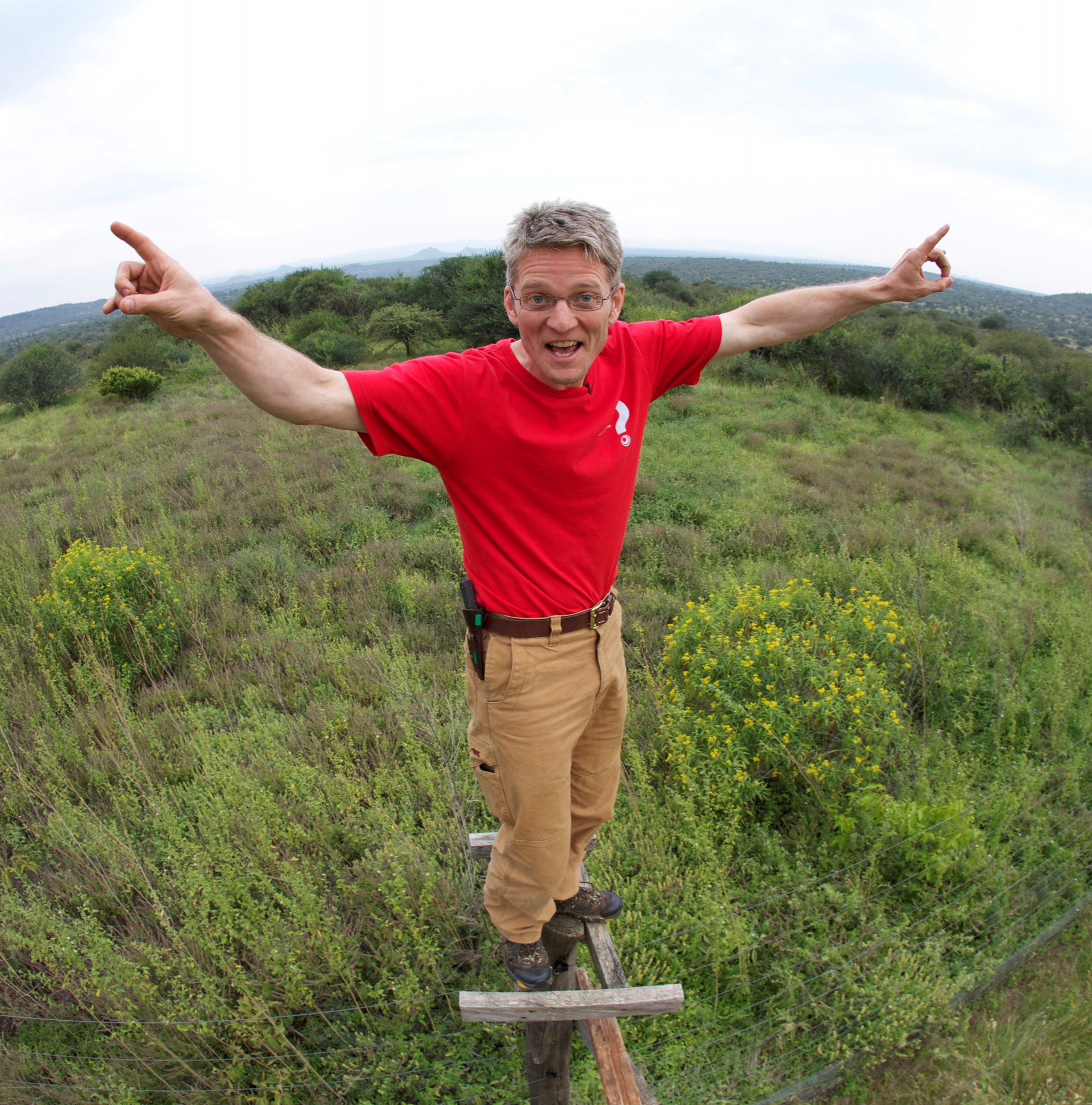 Roland Kays, BSc, PhD, Research Associate Professor, North Carolina State University, Head of the Biodiversity Lab, NC Museum of Natural Sciences
Roland Kays, BSc, PhD, Research Associate Professor, North Carolina State University, Head of the Biodiversity Lab, NC Museum of Natural Sciences
Referred to fondly as “Mr. Camera Trap,” Roland is a zoologist with a broad interest in ecology and conservation, especially of mammals. He studies research questions that are scientifically interesting but also have real-world relevance through educational or conservation value. Roland is an expert in using new technologies to study free-ranging animals, especially to track their movement with GPS tags and camera traps. He combines this high-tech work with traditional methods, collecting data through field work and studies of museum collections. Roland will present a talk titled “Monitoring states and countries with camera traps: strategies, study design, and discoveries.”
The speakers below were invited to highlight work taking place in the region, abstracts may be found here.
- Cole Burton, PhD, Canada Research Chair in Terrestrial Mammal Conservation, University of British Columbia, WildCo Lab. Scaling up insights from camera trapping in western Canada with the WildCAM network
- Emily Chow & Holger Bohm, BC FLNRORD. Kootenay remote camera wildlife monitoring project
- Kim Dawe, PhD, Quest University Canada. Monitoring dynamics of mammal intensity of use in outdoor recreation hot spots in the Sea to Sky Corridor
- Jason Fisher, BScH, MSc, PhD, Adjunct Professor, University of Victoria. The Changing Face of Mammal Communities on the East Slopes of the Rocky Mountains. NOTE: This talk was originally put together for this conference but was delivered in CMI’s CREDtalks series when the conference was reschedule due to COVID. A recording of this talk is found here.
Workshop
Using camera trap data: how to perform robust exploration and analysis in R
The use of camera traps to study wildlife communities is rapidly growing, thus we need tools to rapidly explore and interrogate the data which camera traps produce. We will use our experience compiling multiple datasets for global synthesis projects to guide you through the key elements of exploring camera trap data – from essential error checking to basic analyses. The workshop will assume that you have already watched Chris Beirne’s primer workshop on data standardization found in this CREDtalk here.
This workshop will be of use to any individual or organization using camera traps to collect information on wildlife populations. Although no prior experience in R is required, a basic understanding of R and R Studio would be highly beneficial.
Facilitated by Christopher Beirne, WildCo lab Post-doc, University of British Columbia
Our event partners & sponsors
Columbia Mountains Institute is pleased to work with these agencies in hosting this event: WildCAM Network, University of British Columbia, Ministry of Forests, Lands, Natural Resource Operations and Rural Development, University of Victoria, and LGL Limited. We also thank Wildlife Insights for their support.
We thank the Columbia Basin Trust, Teck Resources Ltd, Alberta Biodiversity Monitoring Institute, and LGL Limited for their financial support of this event.


